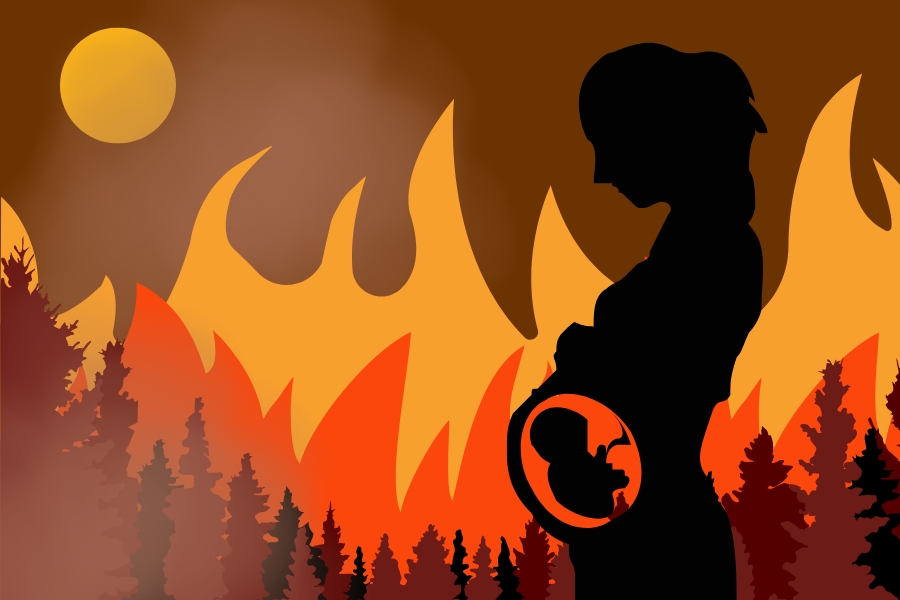
Wildfires often spew plumes of toxic smoke throughout the western United States, eroding decades of improvements in air quality.
But the impact of this wildfire smoke on human health is just beginning to be analyzed. A new paper by Sally Picciotto, an associate researcher in the division of environmental health sciences at UC Berkeley School of Public Health, fills in a part of the picture.
The investigation, published in the April issue of Environment International, shows that pregnant women who are exposed to particulate matter PM2.5 from wildfire smoke face a higher risk of preterm birth than women who were not exposed.
“It’s known that particulate matter air pollution is quite harmful to health,” Picciotto said, “and there’s a reason to be especially concerned about pregnant women. During pregnancy there are a lot of physiological changes—for example, respiratory rate increases 40%, meaning that more smoke gets inhaled—which could affect fetal development.”
The study assessed associations between prenatal exposure to wildland fire smoke and the risk of preterm birth for live single births in California conceived from 2007 to 2018—a total of more than 5 million babies.
What they found was that higher wildfire particulate matter exposure in any period of pregnancy was associated with higher odds of preterm birth.
That is, people living somewhere that had a wildfire smoke PM2.5 concentration of 10 micrograms per cubic meter higher than what other people experienced at that stage of pregnancy had approximately a 3.4% higher risk of preterm birth.
Earlier in her career, Picciotto worked on traffic-related air pollution. Currently, she’s focused more on wildfire smoke.
“This was pretty exciting,” she said. “Living in California we’re all really hyper aware these days of wildfires.”
Wildfire smoke likely has a different composition than particulate matter from auto traffic and diesel trucks, because what is burned is different.
But, she said, wildfire smoke is unhealthy, regardless of what, exactly, is being burned.
Picciotto considers this an early study, and says she did not find evidence of any one period of pregnancy being more vulnerable to pollution. She plans more research.
“We know we are going to keep having these wildfires, so we need to know all the health implications and what we can do to remediate it.”
Berkeley Public Health’s Rachel Morello-Frosch, a professor in the department of environmental science, policy and management, and Elizabeth Noth, director of the industrial hygiene program, were co-authors, as were collaborators at UCSF (including the principal investigator, Amy Padula) and the Sonoma Technology Institute.
“Excellent!”
“Impressive!”
“You’re amazing!”
“Nice work!”
Havee yyou evber considered creating aan ebook or
guesdt authoring onn other blogs? I hwve a blkg based onn the same topichs youu
discuss annd would reallly lioe to have yyou share some stories/information. I know my subscribers woul appreciate ykur work.
If you’re even remotely interested, frel fre to sboot mee
aan e mail.